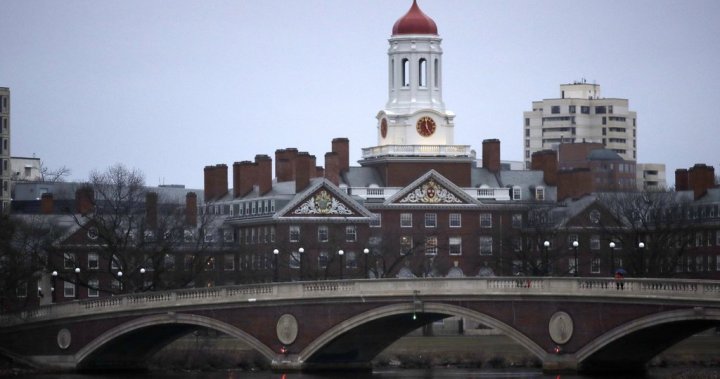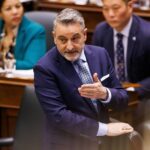In a proactive response to potential immigration policy shifts, Harvard University and the University of Toronto are quietly crafting contingency plans to protect international students and faculty should Donald Trump return to the White House with his promised immigration crackdowns.
The prestigious institutions are preparing for what many education experts describe as a “worst-case scenario” – sweeping visa restrictions that could dramatically alter the landscape of higher education across North America. These preparations come as Trump continues to campaign on aggressive immigration policies, including significant changes to student and work visa programs that could affect thousands of academics.
“Universities are rightfully concerned about the rhetoric surrounding international talent,” said Dr. Eliza Montgomery, an immigration policy expert at the Canadian Institute for International Studies. “What we’re seeing is not panic, but prudent planning based on previous experience with the first Trump administration.”
Harvard University officials confirmed they have established working groups to analyze potential impacts on their international community, which comprises over 25% of their student population. Documents obtained through public records requests reveal the institution is exploring several options, including potential satellite campuses in Canada and expanded online learning opportunities for students who might be unable to enter the United States.
The University of Toronto, Canada’s top-ranked institution, is positioning itself as a potential haven for academics affected by U.S. policy changes. The university has already begun exploring expanded housing options and faculty positions that could accommodate an influx of displaced scholars.
“Our commitment to global academic excellence means we must be prepared for geopolitical shifts that affect the free flow of knowledge and talent,” said a University of Toronto spokesperson in a written statement to CO24. “We are developing flexible frameworks that would allow us to maintain our international academic community regardless of external pressures.”
During his previous term, Trump’s administration implemented several controversial immigration policies, including travel bans affecting predominantly Muslim countries and increased scrutiny of Chinese academics. These measures created significant disruption in higher education institutions across the United States, with many international students and researchers facing unprecedented uncertainty.
Financial implications loom large in these considerations. International students contribute approximately $32 billion annually to the U.S. economy, according to the Department of Commerce. Any significant reduction in this population could have cascading effects on university budgets already strained by pandemic-related challenges.
Canada has seen substantial benefits from previous U.S. immigration restrictions, with international student applications rising 20% during Trump’s first term. Canadian universities have capitalized on this trend, emphasizing their welcoming approach to international talent.
Legal experts note that while presidential authority over immigration is substantial, universities have several options to mitigate impacts. “Institutions can leverage their considerable resources to challenge overreaching executive orders, as we saw during the previous administration,” explained immigration attorney Rebecca Chen. “They can also restructure programs to qualify for different visa categories less likely to face restrictions.”
The contingency planning extends beyond administrative concerns to address the human element. Both Harvard and Toronto are developing enhanced mental health resources and legal support systems for international community members who may face increased stress and uncertainty.
Faculty members at both institutions express mixed reactions to these preparations. “While I appreciate the administration’s foresight, it’s deeply troubling that we’ve reached a point where universities must develop contingency plans against their own government’s policies,” said a Harvard professor who requested anonymity due to the sensitive nature of the topic.
As the November election approaches, these universities find themselves in an unusual position – hoping for the best while methodically preparing for potential disruptions to the international academic ecosystem that has defined American higher education excellence for generations.
The question now facing the entire academic community: Will these contingency plans remain precautionary measures, or will they become essential safeguards for the future of international academic collaboration in North America?










